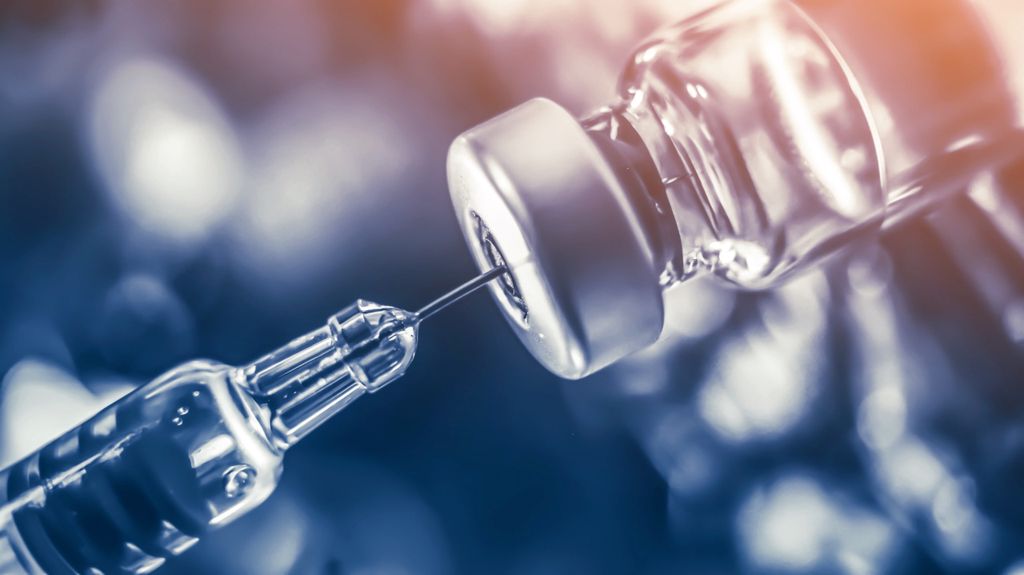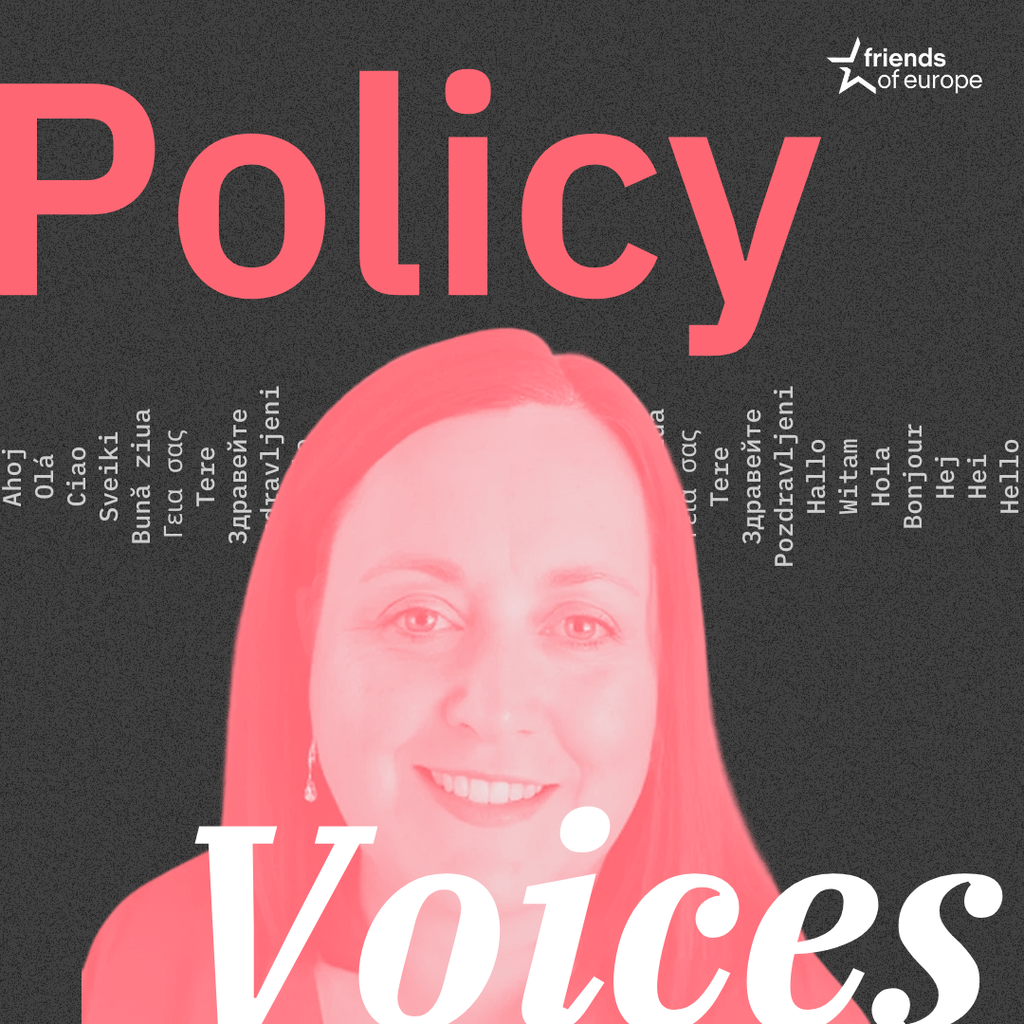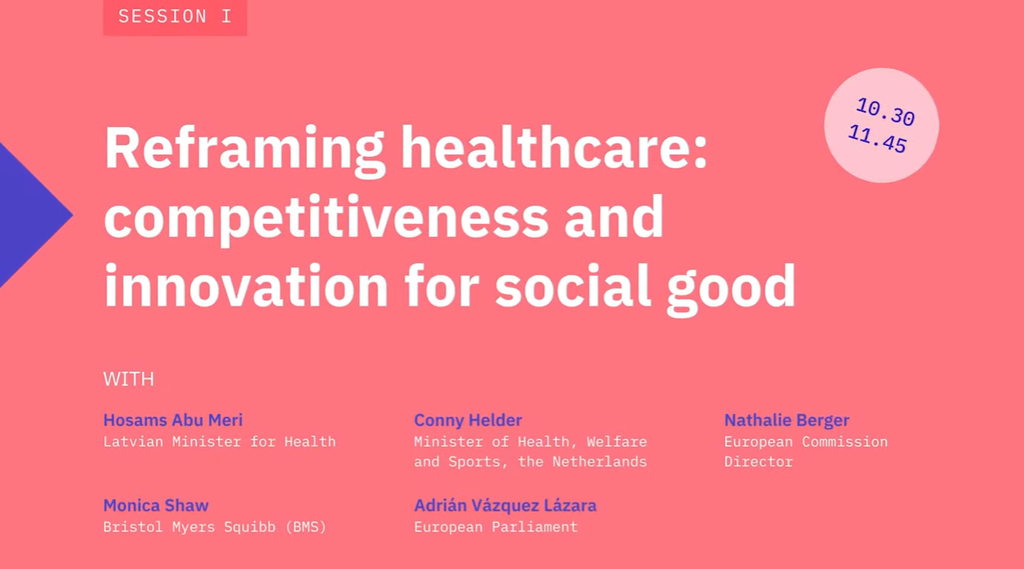Europe's moment: advancing clinical research and health innovation
Next event In person & online

- Area of Expertise
- Sustainable Livelihoods
Sustainable Livelihoods

Senior Director for European Policy & Government Affairs at Novavax
As the saying goes, an ounce of prevention is worth a pound of cure. We should think just as much about preventive health care as we do about detection and treatment.
But herein lies the problem: less than 0.5% of national health budgets in the EU are currently spent on routine immunisation. Moreover, most EU member states spend less than €5 per person each year on immunisation.
This is despite the fact that every €1 invested in adult vaccination has been shown to yield €4 in future economic revenue. Council Conclusions adopted in 2022 refer to vaccination “as one of the most effective tools for preventing disease and improving public health”.
Government investment in prevention is an investment that makes a difference and leads to long-lasting change. It is one that should come into greater focus.
Nowhere has the impact of investment in prevention been seen more clearly than COVID-19 vaccination. The pandemic necessitated record-breaking vaccine development and delivery timelines and mass vaccination campaigns across the globe.
It is not vaccines but vaccinations that make investments in prevention pay off
At Novavax, we rose to the challenge. Leveraging years of research and development (R&D) to refine our technology platform, our team developed a protein-based COVID-19 vaccine, with sites in the Czech Republic and Sweden among those producing key components. We then obtained authorisation from the European Medicines Agency, the European Commission and EU member state authorities to make our vaccine the first protein-based option available to European citizens.
Vaccination against COVID-19, as part of a broader toolbox of public health measures during the pandemic, was essential in allowing us to move to the post-pandemic phase we are in now. Yet thinking about the counterfactual – where we would now be if we did not have a range of COVID-19 vaccines available – is a quick way to realise the impact that prevention can have as a short- and long-term investment.
The challenge now is to change the way we think about investment in COVID-19 vaccination. The rapid emergence of new variants and an increase in cases across the EU and the globe is a clear reminder of this challenge.
For the foreseeable future, COVID-19 will need to be managed through routine vaccination programmes, most likely in a similar way to influenza. Investing in these campaigns will continue to have a positive public health impact, but there are three factors that are required for successful campaigns going forward.
First, we should remember that it is not vaccines but vaccinations that make investments in prevention pay off. A continued focus on optimising vaccine uptake is essential, especially among those who are most at risk. This requires communication campaigns to promote health literacy and to tackle both vaccine hesitancy and the issue of complacency.
Second, investments must support a diverse portfolio of COVID-19 vaccines. This means ensuring that vaccines from multiple suppliers, which use a plurality of technology platforms, are available. This is paramount to enable equitable access, higher vaccine uptake, a more secure supply chain and a competitive environment for vaccine manufacturers in Europe. The importance of diversity of portfolio was also noted in the European Parliament COVI Committee’s report on lessons learned from the COVID-19 pandemic, as well as by the European Court of Auditors.
And finally, the private and public sectors need to continue investing in the development of the next generation of vaccines. Healthcare professionals and citizens are asking for vaccines that offer more convenient protection for a longer duration. At Novavax, for example, our team is investigating a COVID-Influenza Combination (CIC) vaccine candidate, which could simplify the vaccination schedule for its target group. In this sense, the EU should strive to be a partner-of-choice for innovative companies, developers and researchers, also making the region an attractive place to invest in the vaccines sector.
This article is linked to Friends of Europe’s European Health Summit, held on 10 October 2023. This article is a contribution from a member or partner organisation of Friends of Europe. The views expressed in this #CriticalThinking article reflect those of the author(s) and not of Friends of Europe.
Next event In person & online

Past event In person & livestreamed

Past event In person

Past event In person & livestreamed





Stay informed
We use cookies and similar technologies to adjust your preferences, analyze traffic and measure the effectiveness of our campaigns. Learn more about our privacy policy.